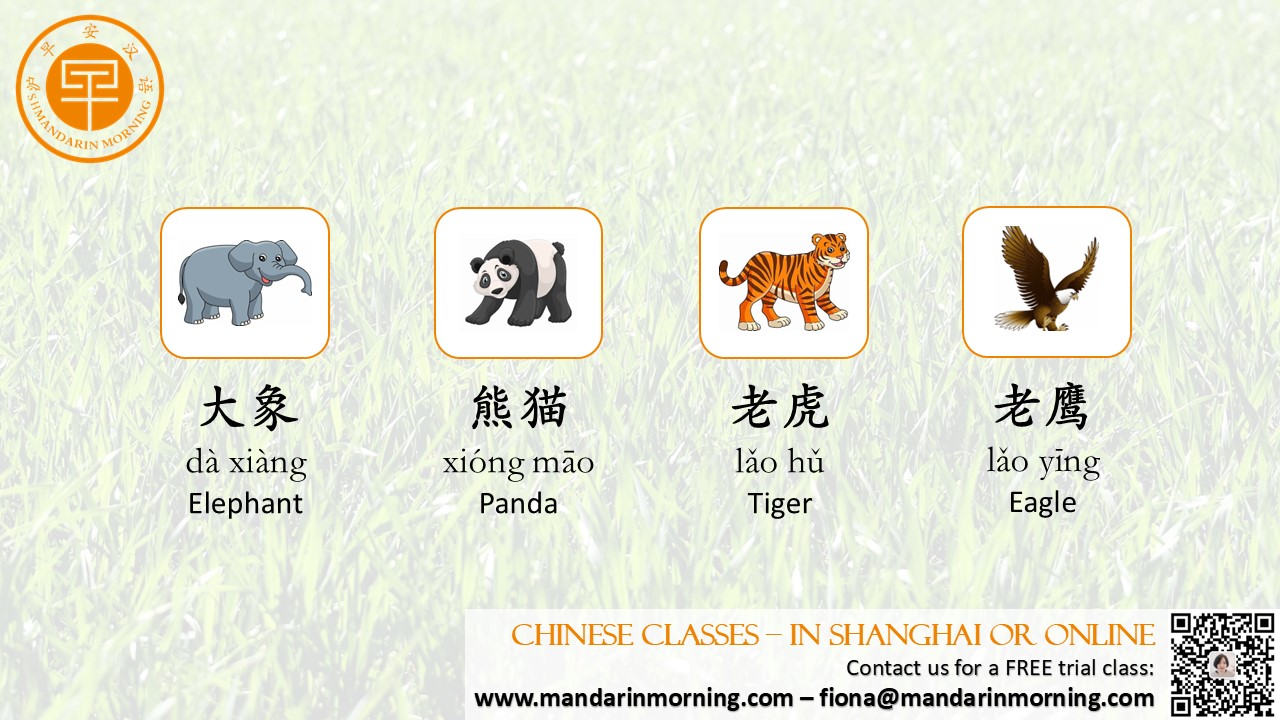Today, we're going on a safari through the fascinating world of Chinese animal vocabulary. Whether you're a beginner or an intermediate learner, knowing these animal names will surely add a touch of fun to your language journey. Let's start with the majestic elephant (大象, dà xiàng). In Chinese, "dà" means "big," and "xiàng" refers to the elephant itself. These gentle giants are often associated with strength and wisdom in Chinese culture. You might hear people use the phrase "大象鼻子长 (dà xiàng bí zi cháng)," which literally means "the elephant's nose is long," to describe something that's very obvious. Next up is the panda (熊猫, xióng māo). "Xióng" means "bear," and "māo" means "cat." Pandas are the national treasure of China, and their adorable appearance has won the hearts of people all over the world. If you visit a zoo in China, you'll likely see signs saying "熊猫馆 (xióng māo guǎn)," which means "panda house." Now, let's talk about the tiger (老虎, lǎo hǔ). "Lǎo" is an honorific prefix, and "hǔ" is the word for tiger. Tigers are symbols of power and bravery in Chinese culture. There's a famous Chinese idiom "虎落平阳被犬欺 (hǔ luò píng yáng bèi quǎn qī)," which means "a tiger in its decline is bullied by dogs." It's used to describe a once mighty person who is now in a weak position. Moving on to the skies, we have the eagle (老鹰, lǎo yīng). "Lǎo" is again the honorific prefix, and "yīng" means "eagle." Eagles are admired for their sharp vision and strong flying ability. In Chinese, when you want to praise someone for having good eyesight, you might say "眼睛像老鹰一样 (yǎn jīng xiàng lǎo yīng yī yàng)," meaning "eyes like an eagle." Lastly, let's not forget the dragon (龙, lóng). The dragon is a mythical creature in Chinese culture, symbolizing power, strength, and good luck. It's a common motif in traditional Chinese art and architecture. During festivals, you might see dragon dances, and people will shout "龙腾虎跃 (lóng téng hǔ yuè)," which means "dragons soar and tigers leap," to express a lively and energetic atmosphere. Learning these animal names in Chinese not only helps you expand your vocabulary but also gives you a glimpse into Chinese culture. So, the next time you visit a zoo or watch a nature documentary, try to use these Chinese words to describe the animals you see. |